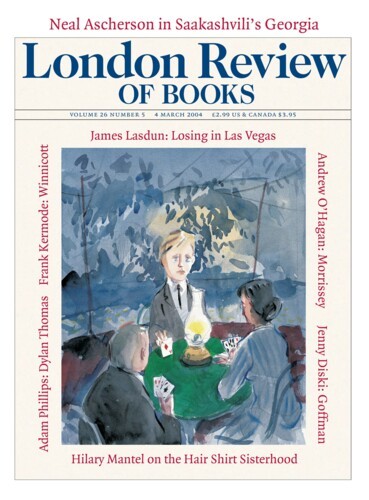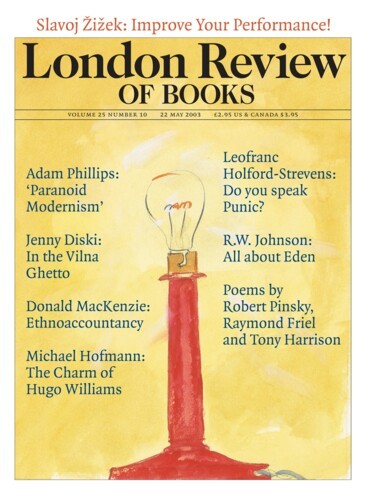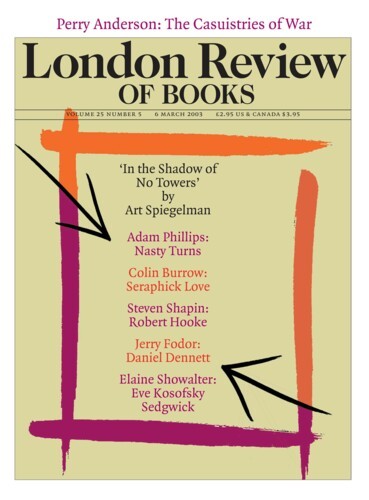A Terrible Thing, Thank God: Dylan Thomas
Adam Phillips, 4 March 2004
Kingsley Amis called Dylan Thomas’s life, the life told by Thomas’s first thorough biographer Paul Ferris, ‘a hilarious, shocking, sad story’. Thomas was very important to the Amis-Larkin club partly because he seemed determined not to be seen to be taking anything, including himself, too seriously. In 1941, Larkin refers to Thomas coming to the English Club at Oxford:...





